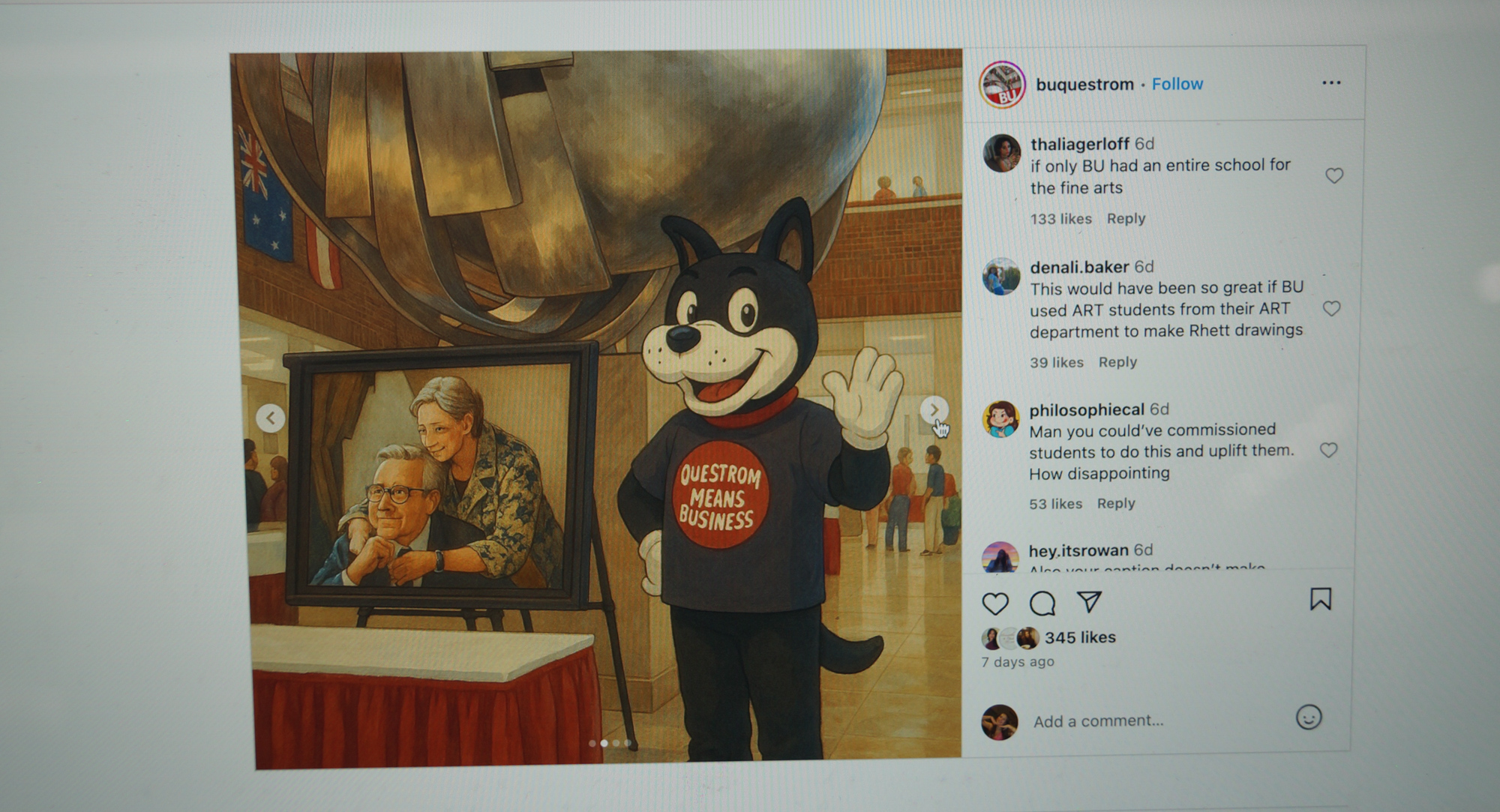Boston University Questrom School of Business uploaded a four-image carousel post to its Instagram depicting an AI-generated Rhett at different locations in the Questrom building March 31.

This post is a rendition of the recent “Studio Ghibli AI” trend, where users generate an image, typically a meme or portrait, in Studio Ghibli art style — a Japanese animation studio — using Open AI’s 4o Image Generator.
Since Open AI’s 4o Image Generator’s March 25 release, those who have participated in the trend have shared their AI-generated images on social media platforms like Instagram, TikTok and X.
The post on the Questrom account has more than 80 comments, a majority of which condemn the use of AI for the post, calling for Questrom to hire student artists instead.
“There’s a huge problem with people using the work of others to train AI,” said Estelle Morris, a sophomore in the College of Fine Arts. “Specifically using copyrighted works, not paying for those works and taking advantage of artists and writers.”
Morris said for an institution that earnestly upholds academic honesty, the University’s use of AI was “tacky” and should be regarded in the same manner as plagiarism.
“I acknowledge that a lot of different disciplines are trying to adapt to a world filled with AI and implement it in different ways,” Morris said. “The thing is, generative AI solely relies on the artists and the people who are creating things. If it doesn’t have any person creating original art, then it gets stuck in a loophole, so it’s very jarring to see.”
Sam Altman, Open AI’s chief executive officer, tweeted the company’s graphics processing units were “melting” from recent demand for the image generation function, calling for the implementation of request limits.
Sofia Montes Garzon, a junior in the College of Communications, said she doesn’t understand the widespread use of AI, especially considering its environmental harm.
“It requires a lot of energy to [use generative AI] to the point where it’s harmful to people as well,” Montes Garzon said. “There are communities that are out of power because the data centers near their towns are [raising] the price of energy and they don’t have power.”
Montes Garzon said Questorm’s specific participation in the “Studio Ghibli AI” trend shows an exceptional “disregard” for artists, considering the studio’s creator Hayao Miyazaki’s disdain for AI and its incorporation into his work.
“I think it’s robbing people of opportunities,” Montes Garzon said. “It’s also robbing people of the opportunities of building skill, especially relating to art and writing.”
Morris said AI needs to remain “stigmatized,” considering its encroachment on creative industries.
“If Questrom wanted an art piece made to commemorate a meeting or a great day had, they could totally just walk down Comm. Ave. and knock on [CFA’s] door and we would love to collaborate,” Morris said. “I think that it would help build community, rather than distance people from one another.”





















































































































